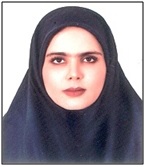INVESTIGATING THE RELATION OF TALENT MANAGEMENT WITH DEVELOPING SUCCESSORS OF HUMAN POWER OF KERMAN UNIVERSITY OF MEDICAL SCIENCES
Keywords:
Developing successors, personnel selection, personnel participation, personnel training, personnel maintenance, talent managementAbstract
Objectives: Today, financial and technological resources are not only enumerated the organization advantage but possessing capable and mighty people may also compensate for lack or imperfection of other resources. In the present competitive status, only those organizations will be successful in obtaining preeminent that have comprehended the strategic role of their human resources and have skillful, knowledge- oriented, qualified, elite and capable human resources. This paper was conducted with the aim of investigating the relation of talent management with developing successors of human resources of Kerman University of Medical Sciences.
Methods: The method used in the present study is of correlation type which was conducted using stratified random sampling method in Military University of Medical Sciences. Also, Ahmadi talent management questionnaire (2012) and Kim developing successors (2006) were used. For data analysis, Pearson correlation test, Kolmogorov- Smirnov test was used.
Results: This study showed that there is a significant and positive relation between talent management and developing successors. Also, there is a significant and positive relation between talent management components (personnel selection, personnel participation, personnel training, and personnel maintenance) and developing successors of human power.
Conclusion: Applying talent management is necessary in any organization in all fields. Since human power of an organization, is considered its greatest wealth, therefore, noticing the personnel talent is very significant since the organizations success depends on the capable and mighty personnel.
Peer Review History:
Received 5 December 2017; Revised 12 January 2018; Accepted 16 February; Available online 15 March 2018
Academic Editor: Dr. Ali Abdullah Al-yahawi , Al-Razi university, Department of Pharmacy, Yemen, alyahawipharm@yahoo.com
, Al-Razi university, Department of Pharmacy, Yemen, alyahawipharm@yahoo.com
Reviewer(s) detail:
Prof. Dr. Amani S. Awaad , Prince Sattam Bin Abdulaziz University, Al-Kharj. KSA., amaniawaad@hotmail.com
, Prince Sattam Bin Abdulaziz University, Al-Kharj. KSA., amaniawaad@hotmail.com
Dr. George Zhu , Tehran University of Medical Sciences, Tehran, Iran, sansan4240732@163.com
, Tehran University of Medical Sciences, Tehran, Iran, sansan4240732@163.com
Downloads

Published
How to Cite
Issue
Section

This work is licensed under a Creative Commons Attribution-NonCommercial 4.0 International License.










 .
.